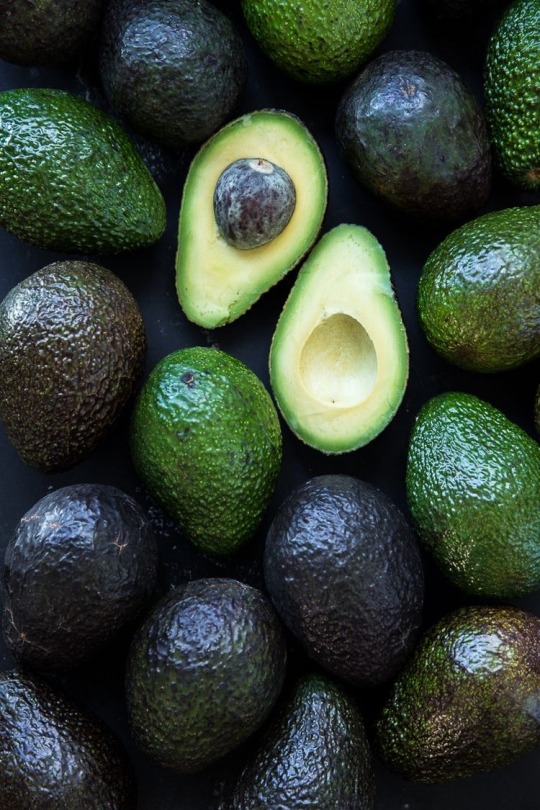#groceries
Text
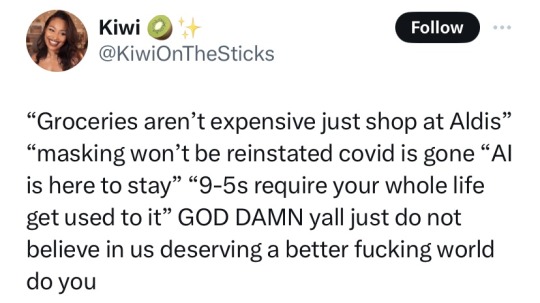
56K notes
·
View notes
Text
edit: “wheres Lidl” “where where’s piggly wiggly” “where’s HEB” THERES ONLY 12 SLOTS THATS WHY I PUT A “Something Else” OPTION!!!! /lh
another edit: I’m not saying that publix is affordable or practical (i completely agree, it’s fucking expensive) i just said it was the best. Also pub subs are fire.
#grocery store#groceries#groceryshopping#publix#publix grocery#aldi#walmart#target#shop-rite#kroger#winn-dixie#sprouts#whole foods#trader joes#florida#florida things
9K notes
·
View notes
Text
When you go to the store for "just one thing"
A porcelain figurine - one of a kind, handmade.



#beaver#ceramics#cute#artoftheday#handmade#art#porcelain#pottery#vegetables#groceries#adorableanimals
29K notes
·
View notes
Text
Everyone help @teaboot buy groceries.

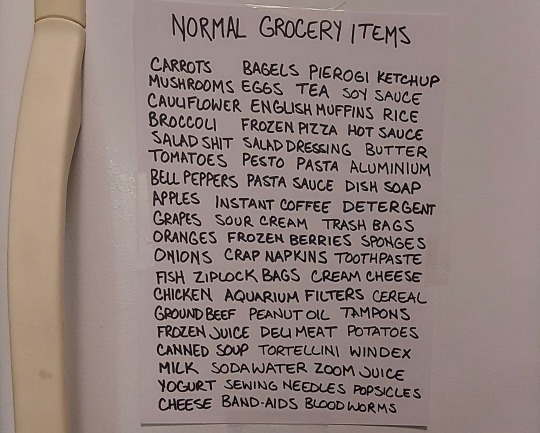
2K notes
·
View notes
Text




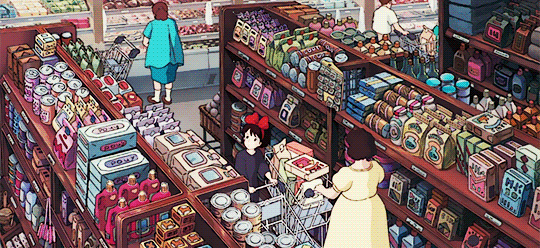
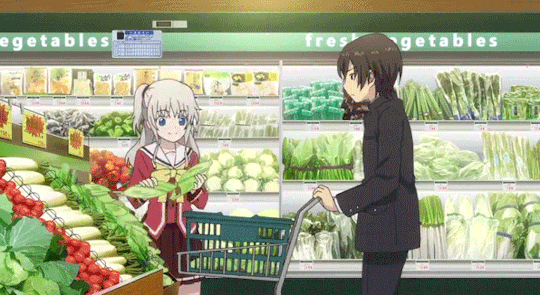




Grocery shopping appreciation post 🛒
#anime#groceries#spy x family#one punch man#chuunibyou#kon#kiki's delivery service#charlotte#wolf children#himouto! umaru chan#Kakumeiki Valvrave#polar bear cafe
2K notes
·
View notes
Text
Tucker Carlson goes grocery shopping in Russia to compare prices. 🤔
#pay attention#educate yourselves#educate yourself#knowledge is power#reeducate yourself#reeducate yourselves#think about it#think for yourselves#think for yourself#do your homework#do some research#do your own research#ask yourself questions#question everything#groceries#russia#usa#government corruption#you decide#news
853 notes
·
View notes
Text
Groceries
#denimshortsclub#denimshorts#jean shorts#short shorts#shorts#hot jeans#perfect#perfect ass#perfection#sexy#groceries
3K notes
·
View notes
Text
Gut Friendly Grocery List 🥦🥑🧀
🧀 Probiotic and Fermented Foods:
Yogurt (look for live and active cultures)
Kefir
Sauerkraut
Kimchi
Pickles (fermented)
Tempeh
Miso
Fermented cheeses (e.g., cheddar, gouda, Swiss)
Kombucha
🫘 Fiber-Rich Foods:
Whole grain bread, cereal or pasta
Oats
Brown rice
Quinoa
Lentils
Chickpeas
Black beans
🍳 Protein:
Lean meats (chicken, turkey, lean cuts of beef or pork)
Fish (salmon, mackerel, sardines)
Eggs (rich in amino acids)
Tofu and tempeh (fermented soy products)
Cottage cheese
🍎 Fruits:
Berries (blueberries, strawberries, raspberries)
Bananas
Apples
Oranges
Lemons
Watermelon
🥦 Vegetables:
Spinach
Broccoli
Cauliflower
Brussels sprouts
Asparagus
Onions
Garlic
Artichokes
Sweet Potato
Jicama
Chicory root
Dandelion greens
🥜 Nuts and Seeds:
Almonds
Walnuts
Flaxseeds
Chia seeds
Pumkin seeds
🥑 Healthy Fats:
Avocado
Olive oil
Grass fed butter
🍠 Herbs and Spices:
Turmeric
Ginger
Garlic
🧉 Beverages:
Green tea
Herbal teas
Aloe vera juice
Coconut water
🍫 Other:
Dark chocolate (in moderation)
Apple cider vinegar
Bone Broth
Raw honey
sea salt
Collagen
Seaweed
#gut health#healthy diet#healthy living#health and wellness#health#wellness#healthy lifestyle#health is wealth#groceries#nutrition
2K notes
·
View notes
Text
So I can't edit this to show what it is exactly, but I basically just got shamed by a Facebook "friend" for offering to share this link to get laundry supplies for my birthday. So now I'm miserable and that wasn't what I'd wanted to happen at all.
So if anyone would like to cheer me up, this is my family's Homeless Supplies list. I need as much of the laundry and disinfectant stuff as I can get. Clothes for me (or even my mom, because she still needs pants) would be a huge help, as I lost 40 pounds last year and most of my stuff is too big or it's full of holes. Food is much appreciated by all three of us.
Can't help? Reblog. Don't care/don't want to help? Don't be an asshole about it. Just ignore me or block me or whatever. But I am thankful to everyone who has helped, everyone who continues to help us, and everyone who is inspired to help. It's basically a waiting game with disability at this point for us to get housing, so all I can do is wait and hope.
But yeah. If you can help, or even just reblog, it would remind me there are good people in the world, and I sorely need that as much as I need anything on the list.
#signal boost#mutual aid#mutual aid request#urgent#direct action#community aid#amazon wishlist#please boost#please reblog#please share#please help#anything helps#help needed#donations#homeless support#groceries#laundry detergent#clothing
645 notes
·
View notes
Text
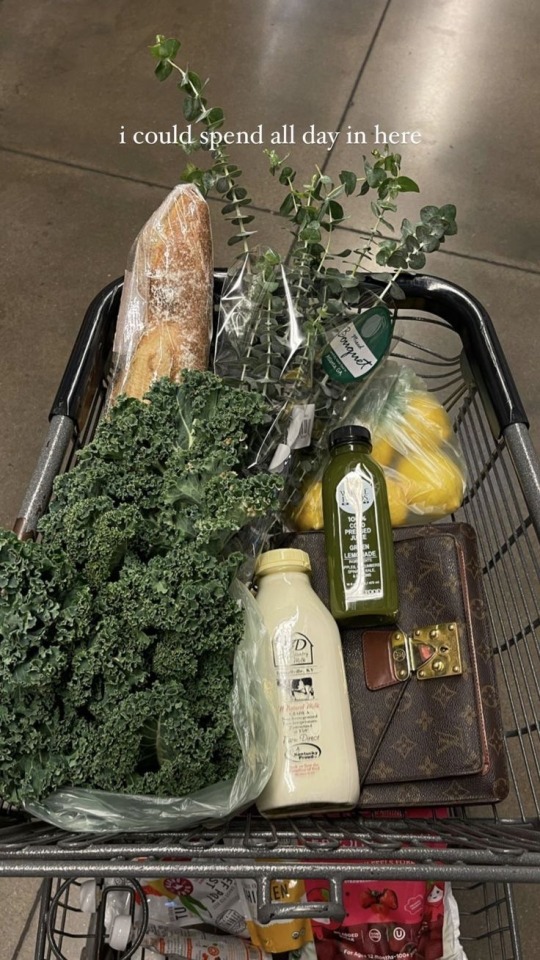


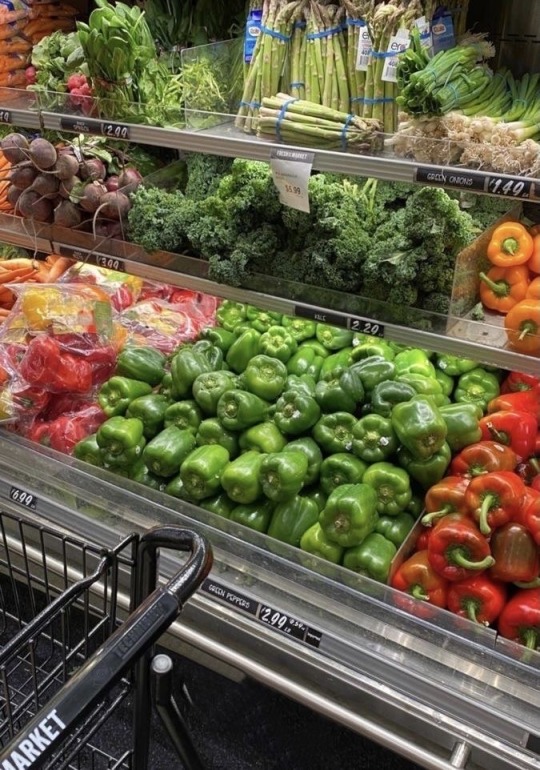
2K notes
·
View notes
Text
Keep the lights on or put food in the fridge? Help us not have to decide.
Our last two paychecks lined up real bad with the holidays and got massively delayed in depositing. You know what didn't get delayed at all? Any of our bills drafting out of the bank! 🙃
So thanks to "fuck you for being poor" overdraft fees for bills that should have been covered, we lost nearly $500 to overdraft fees.
That's our grocery budget for the entire month, much less just this two week pay period, and it's left us short on utilities. 3 out of 4 of us have doctor appointments this month and prescriptions that need refilled.
We're kinda screwed. It's especially upsetting on top of everything else because I'd done a lot of very careful and tight budgeting before the New Year, and I had a sliver of hope in me that we might be able to at least get through a few months of 2024 without having to beg for help. All that's being helping me cope with this situation is the reminder that I've done my best and capitalism actively wants to punish me for existing.
If you'd like to help four disabled trans people stay warm and fed, it would means the world to me. If you have nothing to give, please reblog this post to give us a wider net.
[email protected]/chaosqueer
v3nmo: @chaosqueer
c@shapp: @chaosqueer
#2024 has not been off to a great start#i'd probably also be coping with all of this *a little bit better* if i hadn't been oFF MY hORMONES FOR THE LAST TWO MONTHS 🙃🙃🙃#but that's a different rant#donations needed#donations#grocery help#groceries#community aid#crowdfunding#signal boost
773 notes
·
View notes
Text
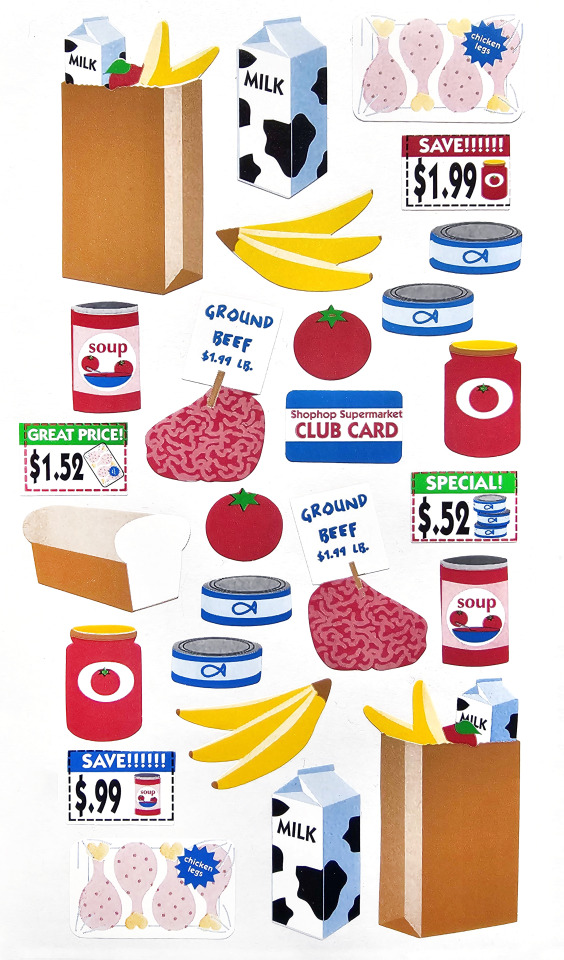
🍌 Vintage grocery-themed stickers by Stickopotamus 🍌
272 notes
·
View notes
Text
Meatspace twiddling

I'm on tour with my new, nationally bestselling novel The Bezzle! Catch me next weekend (Mar 30/31) in ANAHEIM at WONDERCON, then in Boston with Randall "XKCD" Munroe (Apr 11), then Providence (Apr 12), and beyond!

"Enshittification" isn't just a way of describing the symptoms of platform decay: it's also a theory of the mechanism of decay – the means by which platforms get shittier and shittier until they are a giant pile of shit.
I call that mechanism "twiddling": this is the ability of digital services to alter their business-logic – the prices they charge, the payouts they offer, the particulars of the deal – from instant to instant, for each user, continuously:
https://pluralistic.net/2023/02/19/twiddler/
Contrary to Big Tech's own boasting about its operations, the tricks that tech firms play to siphon value away from business customers and end-users aren't very sophisticated. They're crude gimmicks, like offering a higher per-hour wage to Uber drivers whom the algorithm judges to be picky about which rides they'll clock in for, and then lowering the wage by small increments as a way of lulling the driver into gradually accepting a permanent lower rate:
https://pluralistic.net/2023/04/12/algorithmic-wage-discrimination/#fishers-of-men
This is a simple trick. The difference is that tech platforms like Uber can play it over and over, and very quickly. There's plenty of wage-stealing scumbag bosses who'd have loved to have shaved pennies off their workers' paychecks, then added a few cents back in if a worker cried foul, then started shaving the pennies again. The thing that stopped those bosses was the bottleneck of payroll clerks, who couldn't make the changes fast enough.
Uber plays crude tricks – like claiming that a driver isn't an employee because the control is mediated through an app – and then piles more crude tricks on top – this algorithmic wage discrimination gambit.
Have you ever watched a shell-game performed very slowly?
https://www.masterclass.com/articles/how-to-do-penn-tellers-famous-cups-and-balls-trick-in-12-steps
It's a series of very simple gimmicks, performed very quickly and smoothly. Computers are very quick and very smooth. The quickness of the hand deceives the eye: do crude tricks with superhuman speed and they'll seem sophisticated.
The one bright spot in the Great Enshittening that we're living through is that many firms are not sufficiently digitized to to these crude tricks very quickly. Take grocery stores: they can get up to a lot of the same tricks as Amazon – for example, they can charge suppliers for placement on the most prominent, easiest-to-reach shelves, reorganizing your shopping based on which companies pay the biggest bribes, rather than offering the best products and prices.
But Amazon takes this to a whole different level – beyond simply organizing their product pages based on payola, they do this for search. You ask Amazon, "What's your cheapest batteries?" and it lies to you. If you click the first link in a search-results page, you'll pay 29% more than you would if you got the best product – a product that is, on average, 17 places down on the results page. Amazon makes $38b/year taking bribes to lie to you:
https://pluralistic.net/2023/11/06/attention-rents/#consumer-welfare-queens
Amazon can do more than that. Thanks to its digital nature, it can continuously reprice its offerings – indeed, it can simply make up each price displayed on every product at the instant you look at it – based on its surveillance data about you, estimating your willingness to pay. For sellers, Amazon can continuously re-weight the likelihood that a given product will be shown to a customer based on the seller's willingness to discount their products, even to the point where they go out of business:
https://www.businessinsider.com/sadistic-amazon-treated-book-sellers-the-way-a-cheetah-would-pursue-a-sickly-gazelle-2013-10
Twiddling, in other words, lets digital services honeycomb their servers with sneaky wormholes that let them siphon value away from one kind of platform user and give it to another (as when Apple silently began spying on Iphone owners to create profiles for advertisers), or to themselves.
But hard-goods businesses struggle to do this kind of twiddling. Not for lack of desire – but for lack of capacity. Jeff Bezos, owner of Amazon Fresh – an online grocery store – can change prices and layout millions of times per day, at effectively zero cost. Jeff Bezos, owner of Whole Foods – a brick-and-mortar grocer – needs a army of teenagers on rollerskates with pricing guns to achieve a fraction of this agility.
So hard-goods businesses are somewhat enshittification-resistant. It's not that their owners are more interested in the welfare of their customers, workers and suppliers – they merely lack the capacity to continuously rejigger the way their business runs.
Well, about that.
Grocers have been experimenting with "electronic shelf labels" in order to do "dynamic pricing" – that means that prices change quickly, in response to circumstances:
https://www.npr.org/2024/03/06/1197958433/dynamic-pricing-grocery-supermarkets
This doesn't have to be bad! As @planetmoney points out, it's a little weird that grocers don't discount milk whose sell-by date is drawing near. That milk is worth less to shoppers, because they have to use it more quickly lest it expire. Instead of marking down the price of perishable goods – day-old lettuce, yesterday's bread, etc – grocers put them on the shelves next to fresher, more valuable products, leading to billions of dollars' worth of food-waste and and unimaginable quantities of methane-producing, planet-cooking landfill.
In Norway, ESLs are pretty well established and – at least according to Planet Money's reporting – they are used exclusively to offer discounts in order to reduce waste. They make everyone better off.
But towards the end of the story, they note that Norway's grocery sector – which alters prices up to 2,000 times per day – has been accused of using ESLs to rig prices, hiking them and blaming them on pandemic supply-chain problems and loose monetary policy. Greedflation, in other words.
Greedflation is rampant in the grocery sector, all around the world. Remember when the price of eggs doubled and they blamed in on bird-flu, even as the CEO of the one company that owns every egg brand you've ever heard of boasted about how he could hike prices and suckers would just pay it?
https://pluralistic.net/2023/01/23/cant-make-an-omelet/#keep-calm-and-crack-on
In Canada, grocers rigged the price of bread, the most Les-Mis-ass form of corporate crime you can imagine (do you want guillotines, Galen Weston? Because this is how you get guillotines):
https://en.wikipedia.org/wiki/Bread_price-fixing_in_Canada
EU grocers – another highly concentrated industry – also collude to rig prices:
https://pluralistic.net/2023/09/17/how-to-think-about-scraping/
Which is all to say that while these companies don't have to use the twiddling capabilities that come with ESLs to enshittify their stores, we'd be pretty fucking naive to assume that they won't.
And here's the bad news: US grocers like Whole Foods (owned by Amazon, the company that wrote the enshittification playbook) are already experimenting with ESLs. So is Alberstons/Safeway, the massive, inbred conglomerate that has already demonstrated its passion for using twiddling to fuck over their workers:
https://knock-la.com/vons-fires-delivery-drivers-prop-22-e899ee24ffd0/
Economists love "price discrimination" – where prices change based on circumstance, trying to match the perfect price with the perfect customer. On paper, that sounds plausible: if I need a quart of milk for a recipe I'm making tonight and I get a 50% discount on some about-to-expire 2%, then everyone's better off. I get a discount and the grocer gets some money for milk they'd have to throw away at the end of the day.
But these elegant, self-licking ice-cream cones only emerge if the corporation offering the deal is constrained. Perhaps they're constrained by competition – the fear that you'll go elsewhere. Or perhaps they're constrained by regulation – the fear that they'll be punished if they use twiddling-tech to cheat you.
The grocery sector, dominated by a cartel of massive companies that routinely collude to rip us off, is not constrained by competition. And for years, regulators let them get away with ripping us off (though finally that might be changing):
https://www.nytimes.com/2024/03/21/us/politics/grocery-prices-pandemic-ftc.html?unlocked_article_code=1.ek0.t2Pr.g4n2usbxEcoa
For neoclassical economists, the answer to all this is "caveat emptor" – let the buyer beware. If you want to make sure that ESLs are only used to offer you discounts and not to gouge prices, all you need to do is note the price of everything you buy, every time you buy it, and triple-check it every time you go back to the grocery store. Just be eternally vigilant!
Thing is, the one thing computers are much better at than humans is vigilance. With ESLs and other twiddling mechanisms, you're a fish on a hook, and the seller is tireless in giving you a little more slack, then a little less, until you finally drop your guard.
Economists desperately want these elegant models to work, but "efficient market hypothesis" is a brain-worm that always turns into apologetics for fraud. Dynamic markets sound like a good idea, but they are catnip for cheaters. "Just be eternally vigilant" is miserable advice, and no way to live your life:
https://pluralistic.net/2023/02/24/passive-income/#swiss-cheese-security
In his brilliant novel Spook Country, @GreatDismal describes augmented reality as "cyberspace everting" – that is, turning inside-out:
https://memex.craphound.com/2007/07/31/william-gibsons-spook-country/
The extrusion of twiddling technology from digital platforms into the physical world isn't cyberspace everting so much as it is cyberspace prolapsing.

If you'd like an essay-formatted version of this post to read or share, here's a link to it on pluralistic.net, my surveillance-free, ad-free, tracker-free blog:
https://pluralistic.net/2024/03/26/glitchbread/#electronic-shelf-tags
#pluralistic#fraud apologetics#caveat emptor#twiddling#competition#groceries#price discrimination#norway#electronic shelf tags#planet money#enshittification#constraints#greedflation#efficient market hypothesis brain-worms
244 notes
·
View notes

